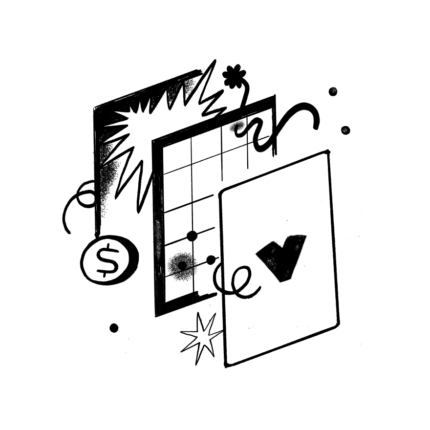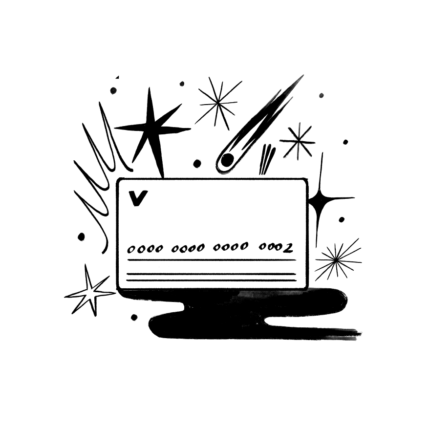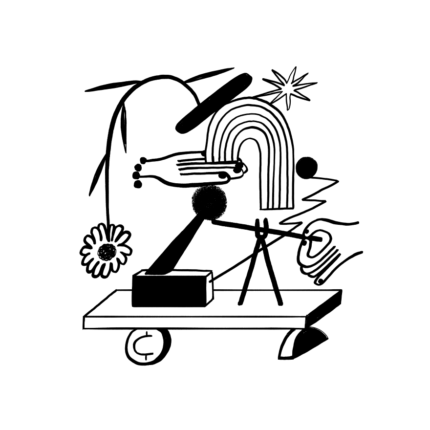
Pay for substance abuse treatment with your HSA
The road to recovery may not be painted in gold, but it can be made easier with the help of your health savings account (HSA).
It’s not the easiest topic to discuss, but it’s a necessary one: substance abuse. Perhaps equally as important: the substance abuser’s road to recovery. And while a very small portion of Americans (less than 1%) get the treatment they need each year, we’re here to tell you that if you that the cost of treatment doesn’t need to be what holds you or your loved one back.
In 2017, an estimated 20.7 million people needed treatment for a substance use disorder. Despite that rather astounding number, a mere 4 million, or 19% of those who needed it, received necessary treatment.
And remember, if you or a loved one is ever in immediate need, do not hesitate to call the National Helpline (Substance Abuse and Mental Health Services Administration) for help. They can be reached at 1-800-662-HELP (4357).
We’re happy to provide you with the knowledge base you need to get started on the road to recovery, but speaking with a healthcare professional is always a great second step before choosing which kind of treatment program is right for you.
Using Your HSA
Treatment for substance abuse is HSA eligible. How do you reap this benefit? Deposit money into your HSA, tax-free, then when you’re ready to spend it on treatment (a qualified medical expense), withdraw it, tax-free.
If you have an HSA, this means that you also have a high deductible health plan (HDHP), aka higher out-of-pocket expenses. This probably doesn’t always feel ideal… we get it. But when it comes to paying for such an important, albeit expensive, medical necessity like substance abuse treatment, that higher deductible becomes totally worth it. Health insurance and your health savings account (HSA) are a great place to start when thinking about paying for treatment.
Alcoholism vs. Drug Addiction Treatment
Inpatient treatment costs for alcoholism is HSA eligible; this means that meals and boarding are also covered. If your treatment also requires Alcoholics Anonymous (AA) meetings either during inpatient or post, transportation expenses are also eligible.
Much like alcoholism treatment, drug addiction treatment is also largely HSA eligible. Inpatient treatment for drug addiction is also covered by your HSA, as are meals and boarding.
If You Don’t Have an HSA…
If you don’t have an HSA but are eligible (e.g you have an HDHP), we highly suggest considering opening a health savings account. It’s the only triple-tax-advantaged retirement account on the market, helping you build wealth and pay for both your short term and long term health.
If saving in an HSA just isn’t in the cards for you right now, but treatment is still something you’re seeking, you have options.
- Employee Assistance Programs (EAPS)
- Financial healthcare loans
- Credit cards
- Crowdfunding
And remember, if you or a loved one is ever in immediate need, do not hesitate to call the National Helpline (Substance Abuse and Mental Health Services Administration) for help. They can be reached at 1-800-662-HELP (4357).
[/vc_column_text][/vc_column][/vc_row]
Treatment Options
- Inpatient vs. outpatient
- Public (including state-funded) vs. private practice
- Post-rehab recovery and/or therapy
We’re happy to provide you with the knowledge base you need to get started on the road to recovery, but speaking with a healthcare professional is always a great second step before choosing which kind of treatment program is right for you.
Using Your HSA
Treatment for substance abuse is HSA eligible. How do you reap this benefit? Deposit money into your HSA, tax-free, then when you’re ready to spend it on treatment (a qualified medical expense), withdraw it, tax-free.
If you have an HSA, this means that you also have a high deductible health plan (HDHP), aka higher out-of-pocket expenses. This probably doesn’t always feel ideal… we get it. But when it comes to paying for such an important, albeit expensive, medical necessity like substance abuse treatment, that higher deductible becomes totally worth it. Health insurance and your health savings account (HSA) are a great place to start when thinking about paying for treatment.
Alcoholism vs. Drug Addiction Treatment
Inpatient treatment costs for alcoholism is HSA eligible; this means that meals and boarding are also covered. If your treatment also requires Alcoholics Anonymous (AA) meetings either during inpatient or post, transportation expenses are also eligible.
Much like alcoholism treatment, drug addiction treatment is also largely HSA eligible. Inpatient treatment for drug addiction is also covered by your HSA, as are meals and boarding.
If You Don’t Have an HSA…
If you don’t have an HSA but are eligible (e.g you have an HDHP), we highly suggest considering opening a health savings account. It’s the only triple-tax-advantaged retirement account on the market, helping you build wealth and pay for both your short term and long term health.
If saving in an HSA just isn’t in the cards for you right now, but treatment is still something you’re seeking, you have options.
- Employee Assistance Programs (EAPS)
- Financial healthcare loans
- Credit cards
- Crowdfunding
And remember, if you or a loved one is ever in immediate need, do not hesitate to call the National Helpline (Substance Abuse and Mental Health Services Administration) for help. They can be reached at 1-800-662-HELP (4357).
[/vc_column_text][/vc_column][/vc_row]
Fortunately, a variety of options exist that can make financial planning simpler, and treatment more affordable. We’re happy to report that a health savings account (HSA) can make the road to recovery a lot more accessible than you might’ve thought.
The Cost Breakdown
Let’s start with what usually proves prohibitive when it comes to treatment: cost. As is the case for any medical expense, i.e. doctor you choose, or medication you’re prescribed for purchase, the cost of substance abuse treatment varies. In fact, the difference can be tens of thousands of dollars.
Before we get into go any further into this, let us just say: wow, you’ve taken the time to learn about something very important, either for yourself or someone you love. Well done. Our first suggestion here is to try not to become too overwhelmed by the options, price differentials, etc. After all, this influx of information is just that… information. It’s all subjective and personal, and it may take some time to digest.
Treatment Options
- Inpatient vs. outpatient
- Public (including state-funded) vs. private practice
- Post-rehab recovery and/or therapy
We’re happy to provide you with the knowledge base you need to get started on the road to recovery, but speaking with a healthcare professional is always a great second step before choosing which kind of treatment program is right for you.
Using Your HSA
Treatment for substance abuse is HSA eligible. How do you reap this benefit? Deposit money into your HSA, tax-free, then when you’re ready to spend it on treatment (a qualified medical expense), withdraw it, tax-free.
If you have an HSA, this means that you also have a high deductible health plan (HDHP), aka higher out-of-pocket expenses. This probably doesn’t always feel ideal… we get it. But when it comes to paying for such an important, albeit expensive, medical necessity like substance abuse treatment, that higher deductible becomes totally worth it. Health insurance and your health savings account (HSA) are a great place to start when thinking about paying for treatment.
Alcoholism vs. Drug Addiction Treatment
Inpatient treatment costs for alcoholism is HSA eligible; this means that meals and boarding are also covered. If your treatment also requires Alcoholics Anonymous (AA) meetings either during inpatient or post, transportation expenses are also eligible.
Much like alcoholism treatment, drug addiction treatment is also largely HSA eligible. Inpatient treatment for drug addiction is also covered by your HSA, as are meals and boarding.
If You Don’t Have an HSA…
If you don’t have an HSA but are eligible (e.g you have an HDHP), we highly suggest considering opening a health savings account. It’s the only triple-tax-advantaged retirement account on the market, helping you build wealth and pay for both your short term and long term health.
If saving in an HSA just isn’t in the cards for you right now, but treatment is still something you’re seeking, you have options.
- Employee Assistance Programs (EAPS)
- Financial healthcare loans
- Credit cards
- Crowdfunding
And remember, if you or a loved one is ever in immediate need, do not hesitate to call the National Helpline (Substance Abuse and Mental Health Services Administration) for help. They can be reached at 1-800-662-HELP (4357).
[/vc_column_text][/vc_column][/vc_row]


